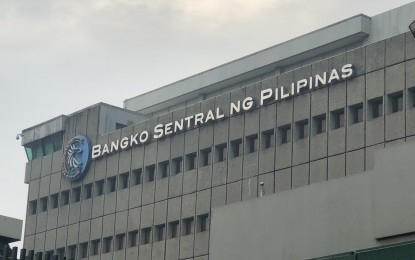
MANILA – Monetary policies’ importance in helping buoy the domestic economy from the pandemic is expected to be sustained until 2022, as an economist projects a vulnerable third quarter following the reimplementation of strictest lockdown level in Metro Manila amid the threat of a more transmissible Delta variant.
The domestic economy posted decades-high 11.8-percent growth, as measured by gross domestic product (GDP), in the second quarter this year, an improvement from the -3.9 percent in the previous quarter and the -16.9 percent a year ago.
In a report, ING Bank Manila senior economist Nicholas Mapa said economic growth from April to June this year was affected by the strictest quarantine classification, the enhanced community quarantine (ECQ), implemented from March 29 to April 11 to address the surge in coronavirus disease 2019 (Covid-19) cases.
“The economic recovery will likely face a similar setback in 3Q (third quarter) as mobility restrictions returned in August with the country now facing a surge in Covid-19 infections due to the Delta variant,” he said.
Another ECQ has been implemented in the National Capital Region (NCR) since Aug. 6 until Aug. 20.
To counter the pandemic’s impact on domestic growth and ensure recovery, economic managers said the government will further bolster the vaccination program against Covid-19 along with the safe reopening of the economy and the full implementation of the recovery package, which include the implementation of the Corporate Recovery and Tax Incentives for Enterprises (CREATE) law.
Mapa said the government “may be forced to resort to costly mobility restrictions again should new variants cause future waves of infection.”
“Bangko Sentral ng Pilipinas has vowed to retain its accommodative monetary policy stance for as long as the economy is in ‘recovery mode’ and we expect Governor (Benjamin) Diokno to be on hold well into 2022,” he said.
The BSP slashed its key rates by a total of 200 basis points in 2020 to help lift the domestic economy from the virus-induced pandemic.
To date, the central bank’s overnight reverse repurchase (RRR) rate is at record-low of 2 percent.
It also slashed banks’ reserve requirement ratio (RRR) by as much as 200 basis points.
Both measures are aimed at encouraging lending activities to ensure that economic activities remain robust.
Aside from the rate cuts, the BSP also extended cash advances to the national government since last year and entered a repurchase deal amounting to PHP300 billion, with the latter fully redeemed last year.
The cash advances amounted to PHP540 billion per deal, which has been made three times, specifically in October and December 2020 and in July this year.
The national government has paid the previous two cash advances.
The BSP Charter allows the central bank to extend bridge financing to the national government, with the amount to be based on the average revenues of the national government in the past three years.
“Fiscal stimulus may also be warranted to reverse the economic downturn but it appears that authorities will cut back on spending to preserve debt metrics after the recent Fitch outlook revision,” Mapa added.
He was referring to Fitch Ratings’ decision last July to change its outlook on the country’s investment grade rating, BBB, from stable to negative, due to the impact of the pandemic. (PNA)
